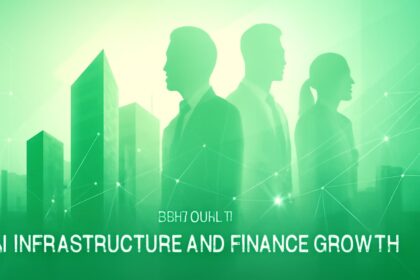X’s refusal to comply with the Sahyog portal and its subsequent legal challenge underscore significant regulatory risks for foreign social media platforms operating in India. The ruling sets a precedent that may embolden further government intervention in online content, potentially impacting platform governance and user engagement. !-- wp:paragraph -->
- Opportunities: Legal clarity on content regulation may encourage platforms to develop compliant moderation frameworks.
- Risks: Increased government control could lead to stricter content censorship and reduced platform autonomy.
- Market Impact: Potential reputational risks for X and other foreign platforms could affect user trust and advertiser confidence.
- Strategic Considerations: Companies must balance compliance with local laws against preserving user rights and platform values.
FinOracleAI — Market View
X’s refusal to comply with the Sahyog portal and its subsequent legal challenge underscore significant regulatory risks for foreign social media platforms operating in India. The ruling sets a precedent that may embolden further government intervention in online content, potentially impacting platform governance and user engagement. !-- wp:paragraph -->- Opportunities: Legal clarity on content regulation may encourage platforms to develop compliant moderation frameworks.
- Risks: Increased government control could lead to stricter content censorship and reduced platform autonomy.
- Market Impact: Potential reputational risks for X and other foreign platforms could affect user trust and advertiser confidence.
- Strategic Considerations: Companies must balance compliance with local laws against preserving user rights and platform values.
FinOracleAI — Market View
X’s refusal to comply with the Sahyog portal and its subsequent legal challenge underscore significant regulatory risks for foreign social media platforms operating in India. The ruling sets a precedent that may embolden further government intervention in online content, potentially impacting platform governance and user engagement. !-- wp:paragraph -->- Opportunities: Legal clarity on content regulation may encourage platforms to develop compliant moderation frameworks.
- Risks: Increased government control could lead to stricter content censorship and reduced platform autonomy.
- Market Impact: Potential reputational risks for X and other foreign platforms could affect user trust and advertiser confidence.
- Strategic Considerations: Companies must balance compliance with local laws against preserving user rights and platform values.
“We respectfully disagree with the view that we have no right to raise these concerns because of our incorporation abroad — X contributes significantly to public discourse in India and the voice of our users is at the heart of our platform. We will appeal this order to defend free expression,” the company said.
Broader Context: Elon Musk’s Expansion in India
X’s legal battle unfolds amid Elon Musk’s broader efforts to expand his business interests in India, including the recent launch of Tesla and final regulatory approval for his satellite internet service, Starlink. !-- wp:paragraph --> The dispute highlights ongoing tensions between global technology companies and Indian regulatory authorities over content moderation, legal compliance, and the balance between government control and user freedoms. !-- wp:paragraph -->FinOracleAI — Market View
X’s refusal to comply with the Sahyog portal and its subsequent legal challenge underscore significant regulatory risks for foreign social media platforms operating in India. The ruling sets a precedent that may embolden further government intervention in online content, potentially impacting platform governance and user engagement. !-- wp:paragraph -->- Opportunities: Legal clarity on content regulation may encourage platforms to develop compliant moderation frameworks.
- Risks: Increased government control could lead to stricter content censorship and reduced platform autonomy.
- Market Impact: Potential reputational risks for X and other foreign platforms could affect user trust and advertiser confidence.
- Strategic Considerations: Companies must balance compliance with local laws against preserving user rights and platform values.
“We respectfully disagree with the view that we have no right to raise these concerns because of our incorporation abroad — X contributes significantly to public discourse in India and the voice of our users is at the heart of our platform. We will appeal this order to defend free expression,” the company said.
Broader Context: Elon Musk’s Expansion in India
X’s legal battle unfolds amid Elon Musk’s broader efforts to expand his business interests in India, including the recent launch of Tesla and final regulatory approval for his satellite internet service, Starlink. !-- wp:paragraph --> The dispute highlights ongoing tensions between global technology companies and Indian regulatory authorities over content moderation, legal compliance, and the balance between government control and user freedoms. !-- wp:paragraph -->FinOracleAI — Market View
X’s refusal to comply with the Sahyog portal and its subsequent legal challenge underscore significant regulatory risks for foreign social media platforms operating in India. The ruling sets a precedent that may embolden further government intervention in online content, potentially impacting platform governance and user engagement. !-- wp:paragraph -->- Opportunities: Legal clarity on content regulation may encourage platforms to develop compliant moderation frameworks.
- Risks: Increased government control could lead to stricter content censorship and reduced platform autonomy.
- Market Impact: Potential reputational risks for X and other foreign platforms could affect user trust and advertiser confidence.
- Strategic Considerations: Companies must balance compliance with local laws against preserving user rights and platform values.
“The Sahyog portal enables officers to order content removal based solely on allegations of ‘illegality,’ without judicial review or due process for the speakers, and threatens platforms with criminal liability for non-compliance,” X stated.
Legal Arguments and Court’s Response
X argued that the Sahyog system violates constitutional rights to freedom of speech and expression, as well as Supreme Court rulings that require due process in content takedown procedures. However, the Karnataka High Court dismissed these claims, ruling that X, as a foreign-incorporated entity, does not possess constitutional free speech protections under Indian law. !-- wp:paragraph --> Responding to the ruling, X emphasized its integral role in Indian public discourse and reaffirmed its commitment to defending freedom of expression through the appeal process. !-- wp:paragraph -->“We respectfully disagree with the view that we have no right to raise these concerns because of our incorporation abroad — X contributes significantly to public discourse in India and the voice of our users is at the heart of our platform. We will appeal this order to defend free expression,” the company said.
Broader Context: Elon Musk’s Expansion in India
X’s legal battle unfolds amid Elon Musk’s broader efforts to expand his business interests in India, including the recent launch of Tesla and final regulatory approval for his satellite internet service, Starlink. !-- wp:paragraph --> The dispute highlights ongoing tensions between global technology companies and Indian regulatory authorities over content moderation, legal compliance, and the balance between government control and user freedoms. !-- wp:paragraph -->FinOracleAI — Market View
X’s refusal to comply with the Sahyog portal and its subsequent legal challenge underscore significant regulatory risks for foreign social media platforms operating in India. The ruling sets a precedent that may embolden further government intervention in online content, potentially impacting platform governance and user engagement. !-- wp:paragraph -->- Opportunities: Legal clarity on content regulation may encourage platforms to develop compliant moderation frameworks.
- Risks: Increased government control could lead to stricter content censorship and reduced platform autonomy.
- Market Impact: Potential reputational risks for X and other foreign platforms could affect user trust and advertiser confidence.
- Strategic Considerations: Companies must balance compliance with local laws against preserving user rights and platform values.
“The Sahyog portal enables officers to order content removal based solely on allegations of ‘illegality,’ without judicial review or due process for the speakers, and threatens platforms with criminal liability for non-compliance,” X stated.
Legal Arguments and Court’s Response
X argued that the Sahyog system violates constitutional rights to freedom of speech and expression, as well as Supreme Court rulings that require due process in content takedown procedures. However, the Karnataka High Court dismissed these claims, ruling that X, as a foreign-incorporated entity, does not possess constitutional free speech protections under Indian law. !-- wp:paragraph --> Responding to the ruling, X emphasized its integral role in Indian public discourse and reaffirmed its commitment to defending freedom of expression through the appeal process. !-- wp:paragraph -->“We respectfully disagree with the view that we have no right to raise these concerns because of our incorporation abroad — X contributes significantly to public discourse in India and the voice of our users is at the heart of our platform. We will appeal this order to defend free expression,” the company said.
Broader Context: Elon Musk’s Expansion in India
X’s legal battle unfolds amid Elon Musk’s broader efforts to expand his business interests in India, including the recent launch of Tesla and final regulatory approval for his satellite internet service, Starlink. !-- wp:paragraph --> The dispute highlights ongoing tensions between global technology companies and Indian regulatory authorities over content moderation, legal compliance, and the balance between government control and user freedoms. !-- wp:paragraph -->FinOracleAI — Market View
X’s refusal to comply with the Sahyog portal and its subsequent legal challenge underscore significant regulatory risks for foreign social media platforms operating in India. The ruling sets a precedent that may embolden further government intervention in online content, potentially impacting platform governance and user engagement. !-- wp:paragraph -->- Opportunities: Legal clarity on content regulation may encourage platforms to develop compliant moderation frameworks.
- Risks: Increased government control could lead to stricter content censorship and reduced platform autonomy.
- Market Impact: Potential reputational risks for X and other foreign platforms could affect user trust and advertiser confidence.
- Strategic Considerations: Companies must balance compliance with local laws against preserving user rights and platform values.
Sahyog Portal: Government’s Automated Content Removal Tool
Launched in late 2024, the Sahyog portal aims to streamline content removal requests by allowing government agencies to issue orders directly to social media platforms. Major companies such as Google, Meta, and ShareChat have integrated with Sahyog, but X remains the notable holdout, refusing to comply. !-- wp:paragraph --> X’s Global Government Affairs team criticized the portal for circumventing Section 69A of the Information Technology Act, which outlines procedural safeguards for content blocking, including the requirement for written orders and judicial review. !-- wp:paragraph -->“The Sahyog portal enables officers to order content removal based solely on allegations of ‘illegality,’ without judicial review or due process for the speakers, and threatens platforms with criminal liability for non-compliance,” X stated.
Legal Arguments and Court’s Response
X argued that the Sahyog system violates constitutional rights to freedom of speech and expression, as well as Supreme Court rulings that require due process in content takedown procedures. However, the Karnataka High Court dismissed these claims, ruling that X, as a foreign-incorporated entity, does not possess constitutional free speech protections under Indian law. !-- wp:paragraph --> Responding to the ruling, X emphasized its integral role in Indian public discourse and reaffirmed its commitment to defending freedom of expression through the appeal process. !-- wp:paragraph -->“We respectfully disagree with the view that we have no right to raise these concerns because of our incorporation abroad — X contributes significantly to public discourse in India and the voice of our users is at the heart of our platform. We will appeal this order to defend free expression,” the company said.
Broader Context: Elon Musk’s Expansion in India
X’s legal battle unfolds amid Elon Musk’s broader efforts to expand his business interests in India, including the recent launch of Tesla and final regulatory approval for his satellite internet service, Starlink. !-- wp:paragraph --> The dispute highlights ongoing tensions between global technology companies and Indian regulatory authorities over content moderation, legal compliance, and the balance between government control and user freedoms. !-- wp:paragraph -->FinOracleAI — Market View
X’s refusal to comply with the Sahyog portal and its subsequent legal challenge underscore significant regulatory risks for foreign social media platforms operating in India. The ruling sets a precedent that may embolden further government intervention in online content, potentially impacting platform governance and user engagement. !-- wp:paragraph -->- Opportunities: Legal clarity on content regulation may encourage platforms to develop compliant moderation frameworks.
- Risks: Increased government control could lead to stricter content censorship and reduced platform autonomy.
- Market Impact: Potential reputational risks for X and other foreign platforms could affect user trust and advertiser confidence.
- Strategic Considerations: Companies must balance compliance with local laws against preserving user rights and platform values.
Sahyog Portal: Government’s Automated Content Removal Tool
Launched in late 2024, the Sahyog portal aims to streamline content removal requests by allowing government agencies to issue orders directly to social media platforms. Major companies such as Google, Meta, and ShareChat have integrated with Sahyog, but X remains the notable holdout, refusing to comply. !-- wp:paragraph --> X’s Global Government Affairs team criticized the portal for circumventing Section 69A of the Information Technology Act, which outlines procedural safeguards for content blocking, including the requirement for written orders and judicial review. !-- wp:paragraph -->“The Sahyog portal enables officers to order content removal based solely on allegations of ‘illegality,’ without judicial review or due process for the speakers, and threatens platforms with criminal liability for non-compliance,” X stated.
Legal Arguments and Court’s Response
X argued that the Sahyog system violates constitutional rights to freedom of speech and expression, as well as Supreme Court rulings that require due process in content takedown procedures. However, the Karnataka High Court dismissed these claims, ruling that X, as a foreign-incorporated entity, does not possess constitutional free speech protections under Indian law. !-- wp:paragraph --> Responding to the ruling, X emphasized its integral role in Indian public discourse and reaffirmed its commitment to defending freedom of expression through the appeal process. !-- wp:paragraph -->“We respectfully disagree with the view that we have no right to raise these concerns because of our incorporation abroad — X contributes significantly to public discourse in India and the voice of our users is at the heart of our platform. We will appeal this order to defend free expression,” the company said.
Broader Context: Elon Musk’s Expansion in India
X’s legal battle unfolds amid Elon Musk’s broader efforts to expand his business interests in India, including the recent launch of Tesla and final regulatory approval for his satellite internet service, Starlink. !-- wp:paragraph --> The dispute highlights ongoing tensions between global technology companies and Indian regulatory authorities over content moderation, legal compliance, and the balance between government control and user freedoms. !-- wp:paragraph -->FinOracleAI — Market View
X’s refusal to comply with the Sahyog portal and its subsequent legal challenge underscore significant regulatory risks for foreign social media platforms operating in India. The ruling sets a precedent that may embolden further government intervention in online content, potentially impacting platform governance and user engagement. !-- wp:paragraph -->- Opportunities: Legal clarity on content regulation may encourage platforms to develop compliant moderation frameworks.
- Risks: Increased government control could lead to stricter content censorship and reduced platform autonomy.
- Market Impact: Potential reputational risks for X and other foreign platforms could affect user trust and advertiser confidence.
- Strategic Considerations: Companies must balance compliance with local laws against preserving user rights and platform values.
Karnataka High Court Upholds Government Content Takedown System
Social media platform X announced on Monday its intention to appeal a recent Karnataka High Court ruling that validated India’s government-operated content takedown portal, Sahyog. The company described the system as “secretive” and argued that it lacks a legal foundation under Indian law. !-- wp:paragraph --> The court’s decision came in response to a petition filed by X in March, which challenged the legality of the Sahyog portal. This online system enables police and government agencies to issue direct takedown orders for content deemed unlawful, bypassing traditional judicial processes. !-- wp:paragraph -->Sahyog Portal: Government’s Automated Content Removal Tool
Launched in late 2024, the Sahyog portal aims to streamline content removal requests by allowing government agencies to issue orders directly to social media platforms. Major companies such as Google, Meta, and ShareChat have integrated with Sahyog, but X remains the notable holdout, refusing to comply. !-- wp:paragraph --> X’s Global Government Affairs team criticized the portal for circumventing Section 69A of the Information Technology Act, which outlines procedural safeguards for content blocking, including the requirement for written orders and judicial review. !-- wp:paragraph -->“The Sahyog portal enables officers to order content removal based solely on allegations of ‘illegality,’ without judicial review or due process for the speakers, and threatens platforms with criminal liability for non-compliance,” X stated.
Legal Arguments and Court’s Response
X argued that the Sahyog system violates constitutional rights to freedom of speech and expression, as well as Supreme Court rulings that require due process in content takedown procedures. However, the Karnataka High Court dismissed these claims, ruling that X, as a foreign-incorporated entity, does not possess constitutional free speech protections under Indian law. !-- wp:paragraph --> Responding to the ruling, X emphasized its integral role in Indian public discourse and reaffirmed its commitment to defending freedom of expression through the appeal process. !-- wp:paragraph -->“We respectfully disagree with the view that we have no right to raise these concerns because of our incorporation abroad — X contributes significantly to public discourse in India and the voice of our users is at the heart of our platform. We will appeal this order to defend free expression,” the company said.
Broader Context: Elon Musk’s Expansion in India
X’s legal battle unfolds amid Elon Musk’s broader efforts to expand his business interests in India, including the recent launch of Tesla and final regulatory approval for his satellite internet service, Starlink. !-- wp:paragraph --> The dispute highlights ongoing tensions between global technology companies and Indian regulatory authorities over content moderation, legal compliance, and the balance between government control and user freedoms. !-- wp:paragraph -->FinOracleAI — Market View
X’s refusal to comply with the Sahyog portal and its subsequent legal challenge underscore significant regulatory risks for foreign social media platforms operating in India. The ruling sets a precedent that may embolden further government intervention in online content, potentially impacting platform governance and user engagement. !-- wp:paragraph -->- Opportunities: Legal clarity on content regulation may encourage platforms to develop compliant moderation frameworks.
- Risks: Increased government control could lead to stricter content censorship and reduced platform autonomy.
- Market Impact: Potential reputational risks for X and other foreign platforms could affect user trust and advertiser confidence.
- Strategic Considerations: Companies must balance compliance with local laws against preserving user rights and platform values.













